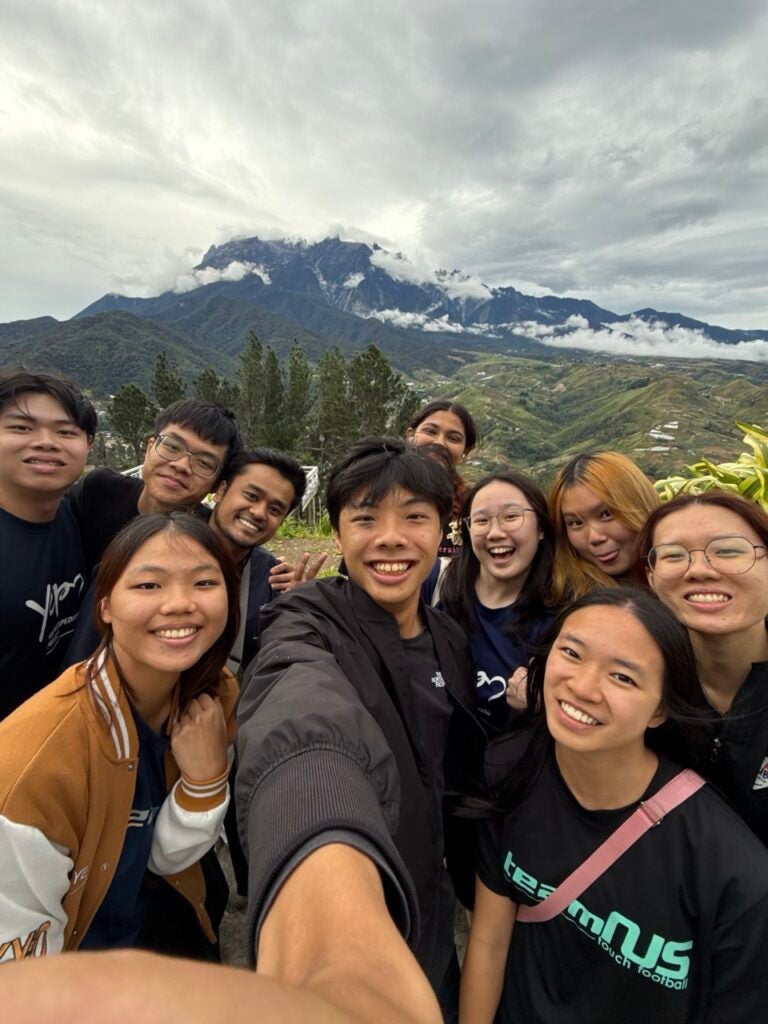Project Sapulot
Lifelong Health Care Education, Safeguarding Futures
Project Sapulot is an Overseas Community Involvement Project (OCIP) based in Sabah, East Malaysia. Our mission is to provide accessible healthcare through medical screenings and quality, holistic education for students in rural, underprivileged areas in Sabah.
We believe that youths are the pillars of the future and the leaders of tomorrow. By investing in young, bright minds during their formative years through education, we aim to create a lasting impact on our target communities. Project Sapulot brings together both Nursing and Non-Nursing students, who collectively possess a wide range of knowledge, skills, and perspectives to effectively carry out our mission for our beneficiaries.
History and Evolution
Founded in 2017, Project Sapulot was initiated by a small group of students from the Alice Lee School of Nursing Centre (NUS Nursing). Sapulot is a rural town situated 217km away from the city, with limited access to healthcare knowledge outside of their village. Fun fact, Sapulot means ‘Sticky’ in the Murut language (their ethnic language).
Since its inception, our team has provided annual health screenings, educational lessons, and home visits to less-privileged students and villagers. Each year, we reach around 400 students, ranging from Primary 1 to Secondary 4.
In recent years, we have also expanded our outreach efforts to other parts of Sabah, such as Sikuati village in Kudat (2024), Kota Kinabalu (2023), Kampung Melangkap in Kota Belud (2025). In 2025, our medical screenings across five villages in Melangkap reached more than a hundred residents, where access to quality healthcare remains severely limited.
How we do it
Our education lessons are designed to equip students with essential knowledge and life skills as they transition into adulthood beyond their village community. These lessons often cover topics not extensively taught in schools, as they fall outside the examinable syllabus. For AY2024/2025, our Education Team created a holistic lesson plan covering topics such as English, Women’s and Men’s Health, Personal Hygiene, Food and Nutrition, and Mental Health. The lesson activities encouraged students to engage in self-development, giving them agency and autonomy to grow into empowered individuals.

In many villages we visit, the nearest clinic is an hour away, with hospitals located even farther. To address this, our Medical Team prepares lessons in Basic First Aid that are simplified for youths to learn and apply. These include Cardiopulmonary Resuscitation (CPR), bandaging, choking rescue procedures, and assembling a First Aid Kit. Students found the content novel, inspiring, and were eager to acquire essential life-saving skills.
Alongside education, Project Sapulot conducts community health screenings and home visits, bridging the gap between vulnerable residents and the healthcare services they lack in. Our thorough screenings are complemented with personalised patient education. We brave challenging terrain to reach the gravely ill, injured, elderly, and less mobile villagers—bringing them the healthcare they deserve but cannot access. In AY2025/2026, we aim to double the number of residents receiving health screenings from us.

Every January, we conduct a reconnaissance trip to understand the needs and challenges of potential beneficiaries. Following this, our Education Team refines lesson content while the Medical Team curates activities according to the most urgent needs assessed. This ensures our initiatives remain thoughtful, effective, and relevant. Project Sapulot aligns its mission with the pressing needs of its beneficiaries through strong partnerships with local organisations in Sabah, securing a lasting and positive impact.

Get Involved
If equipping young minds with lifelong knowledge of health care and self-care resonate with you, learn more about Project Sapulot through our social media channels and connect with us.
Email: projectsapulot2223@gmail.com
Instagram: @projectsapulot (https://www.instagram.com/projectsapulot/)
Tiktok: @projectsapulot (https://www.tiktok.com/@projectsapulot)
List of Overseas Projects

“I joined Project Sapulot in 2024 as a Life Sciences major. It was a daunting endeavour for me since I had no clinical experience and was part of the Non-Nursing minority. Despite my initial apprehension, the trip profoundly impacted my self-development through the holistic education lessons and meticulous health screenings.
As an Education member, it was fulfilling to see students fully engaged in unfamiliar topics through our lesson content and activities. Participating in our first health screenings since the pandemic was especially rewarding, as it was a novel experience I never imagined I could have without Project Sapulot. It truly felt like we made a tangible impact on our beneficiaries and community partners.
Although our target communities may be underprivileged in the conventional sense, their positivity and hospitality were unparalleled. The spirit of our beneficiaries, regardless of circumstance, helped me better appreciate the duties we hold as global citizens with all our privileges.”
– Choo Ruirong, Project Director AY25/26


